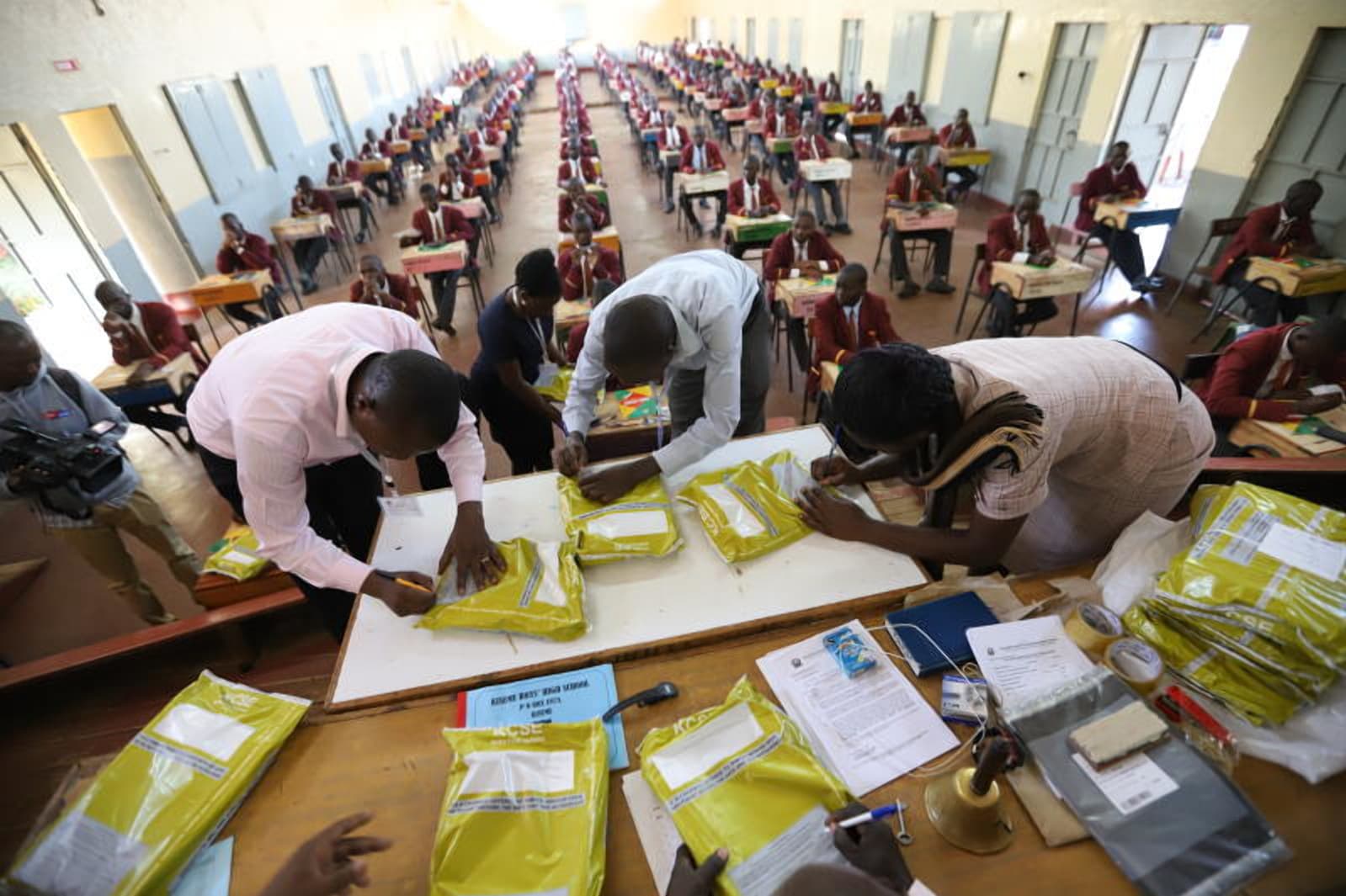We're loading the full news article for you. This includes the article content, images, author information, and related articles.
Over 3.4 million Kenyan learners are preparing for the Kenya Certificate of Primary Education (KPSEA), Kenya Junior Secondary Education Assessment (KJSEA), and Kenya Certificate of Secondary Education (KCSE) examinations, which are scheduled to begin on October 17, 2025.

Approximately 3.4 million learners across Kenya are set to sit for national examinations starting October 17, 2025. This cohort includes candidates for the Kenya Certificate of Primary Education (KPSEA), Kenya Junior Secondary Education Assessment (KJSEA), and Kenya Certificate of Secondary Education (KCSE). The examinations are a crucial part of the academic calendar, determining progression for millions of students nationwide.
The government has adopted a 'whole-of-government' approach in preparation for the rollout of the NYOTA program, which is expected to influence public debate and policy execution. Stakeholders have called for greater clarity regarding the timelines, costs, and safeguards associated with this program. The Ministry of Education, in conjunction with other government agencies, is coordinating efforts to ensure the smooth administration of the national examinations and the successful implementation of new educational initiatives.
National examinations in Kenya serve as key performance indicators for the education system and are instrumental in student placement and career pathways. The KPSEA and KJSEA are part of the Competency-Based Curriculum (CBC) framework, which aims to shift from a content-heavy approach to one that focuses on skills and competencies. The KCSE, on the other hand, is the culmination of secondary education and a gateway to higher learning institutions and vocational training.
The Kenya National Examinations Council (KNEC) is mandated by law to manage and administer national examinations. Its operations are guided by the KNEC Act, which ensures the integrity and credibility of the examination process. Recent policy shifts, particularly with the introduction of the CBC, have necessitated adjustments in examination formats and assessment methodologies for primary and junior secondary levels. These changes aim to align assessments with the broader educational reforms.
Various stakeholders, including parents, teachers, school administrators, and educational experts, are keenly observing the examination preparations. Their primary concerns revolve around the fairness, security, and timely release of results. The government's 'whole-of-government' approach for the NYOTA program suggests a multi-agency effort to address these concerns and ensure a seamless examination period. Education Cabinet Secretary Ezekiel Machogu has previously emphasized the government's commitment to safeguarding the integrity of national examinations.
Potential risks include logistical challenges in distributing examination materials, ensuring adequate security to prevent cheating, and managing the expectations of a large number of learners and their families. The successful execution of these examinations has significant implications for the academic future of millions of Kenyan youth and the overall credibility of the national education system. Any disruptions could lead to widespread public dissatisfaction and undermine confidence in educational reforms.
Specific details regarding the 'NYOTA program' and its direct impact on the examination process remain largely unknown. Further clarity is needed on its operational framework, funding, and how it will integrate with existing examination protocols. The exact number of candidates for each specific examination (KPSEA, KJSEA, KCSE) has not been publicly disaggregated from the total 3.4 million figure.
Observers will be closely monitoring the logistical efficiency of the examination administration, the security measures implemented to prevent malpractices, and any further announcements regarding the NYOTA program. The performance of learners in the new CBC-aligned assessments (KPSEA and KJSEA) will also be a key area of interest, providing insights into the effectiveness of the curriculum reforms.
The national examinations are closely related to ongoing debates about the Competency-Based Curriculum (CBC), teacher training, and government funding for education. The outcomes will likely influence future policy decisions concerning curriculum review and resource allocation in the education sector.
Keep the conversation in one place—threads here stay linked to the story and in the forums.
Sign in to start a discussion
Start a conversation about this story and keep it linked here.
Other hot threads
E-sports and Gaming Community in Kenya
Active 9 months ago
The Role of Technology in Modern Agriculture (AgriTech)
Active 9 months ago
Popular Recreational Activities Across Counties
Active 9 months ago
Investing in Youth Sports Development Programs
Active 9 months ago